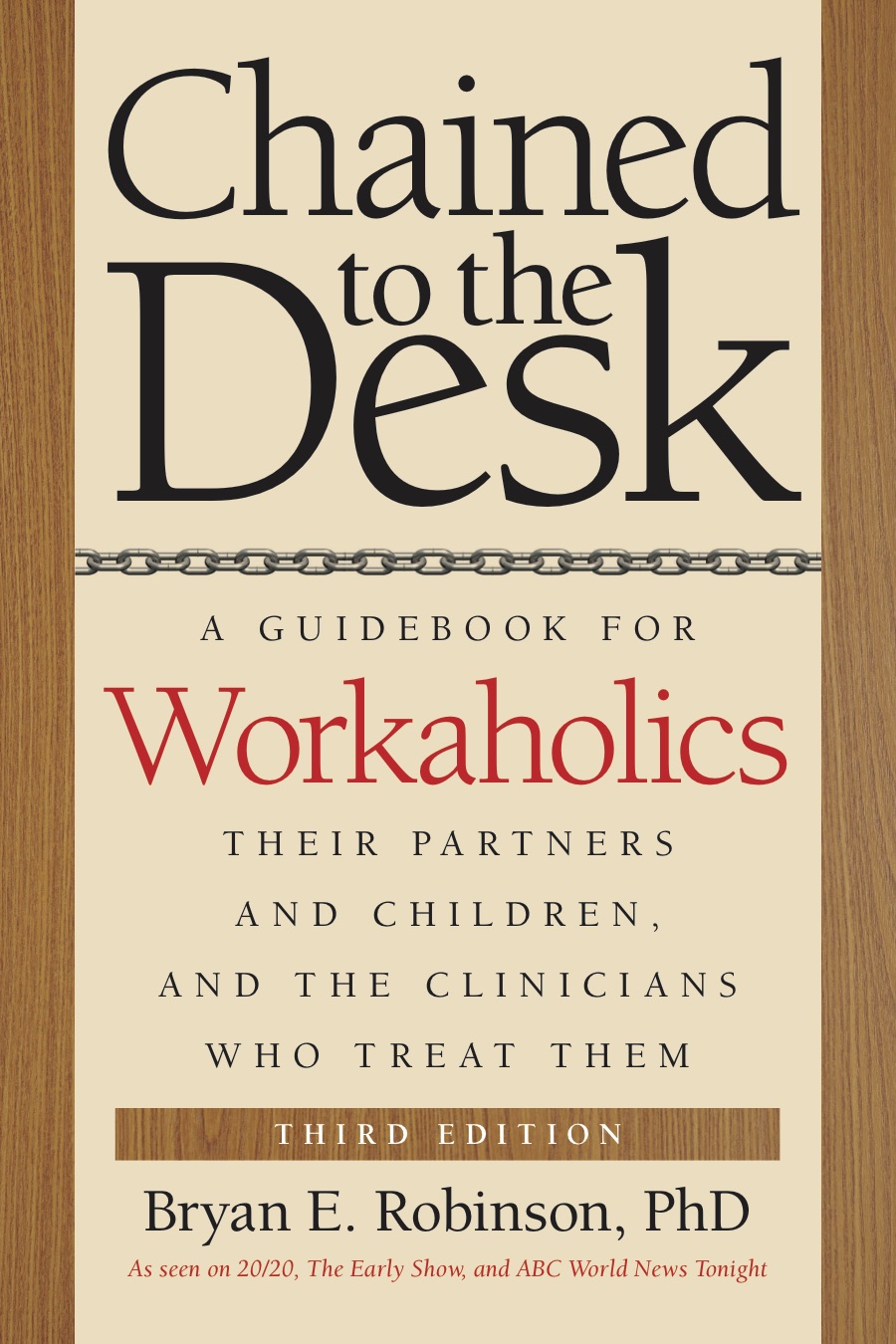You can see how easy it is to get swept away by addictive thinking patterns that distort your work pace and habits. What you say to yourself under the duress of work pops up with such lightning speed that you might not even notice. Work addiction is kept alive by the exaggerated conclusions you draw, most of which are distorted. And you continue to draw wrong conclusions because you keep falling into mind traps– rigid thought patterns that blind you to the facts. Most workaholics don’t realize they’re stuck in a mind trap, worsening their addiction. Once you identify the traps you keep falling into, it helps you recover from your addictive thinking. Following are twelve mind traps that feed work addiction, present in workaholics to varying degrees. Put a checkmark by the mind traps that snare you when you’re working.
- Perfectionistic thinking. Things have to be perfect for me to be happy, and nothing I ever do is good enough.
- All-or-nothing thinking. If I cannot be all things to all people, then I’m nothing. I’m either the best or the worst; there is no in-between.
- Telescopic thinking. I always feel like a failure because I focus on and magnify my shortcomings and ignore my successes.
- Blurred-boundary thinking. It’s hard for me to know when to stop working, where to draw the line, and when to say no to others.
- People-pleasing thinking. If I can get others to like me, I’ll feel better about myself.
- Pessimistic thinking. My life is chaotic, stressful, and out of control; I must stay alert, because if I take time to relax, I might get blindsided.
- Helpless thinking. I am helpless to change my lifestyle. There is nothing I can do to change my schedule and slow down.
- Self-victimized thinking. My family and employer are the reasons I work so much and am stressed and burned out. I am a victim of a demanding job, a needy family, and a society that says, “You must do it all.”
- Resistance thinking. Life is an uphill battle and I must fight to force my way, resist what I don’t want, and cling to keep things as they are.
- Wishful thinking. I wish I could have the things I cannot have because the things I have are of no value. If only my situation would change, I could slow down and take better care of myself.
- Serious thinking. Playing and having fun are a waste of time because there’s too much work to be done.
- Externalized thinking. If I work long and hard enough, I can find happiness and feel better about myself. It’s what happens to me in the external conditions of my life that will determine my happiness.
Perfectionistic thinking tells you to bite off more than you can chew– an action that leads again to feelings of self-defeat and failure, which then leads you back to where you started: self-inadequacy. You engage in all-or-nothing thinking— thinking in extremes instead of seeing the shades of gray. You think you can either spend time with your family or work to support them, but not both. You think something’s wrong with you if you can’t give 100 percent to every area of your life, motivated by such cultural maxims as “I must be all things to all people or I’m a failure,” “If you cannot do a job right, don’t do it at all,” or “If I can’t do it all, I might as well do none of it.”
Even when you succeed, your critical inner voice says you’ve failed. Telescopic thinking is when your workaholic mind acts like a telescope, blind to anything that raises your self-worth, and zooms in on and magnifies the negative. This distorted thinking pattern often starts with critical parents in childhood, as in this example from Stephanie: “I won a writing contest and sent my dad a copy of the story. He said, ‘They must not have had too many entries to pick yours.’ So I have this real sense of needing to prove something.” Telescopic thinking is carried into adulthood where you’re perceived as outstanding by others but you continue to berate yourself, overlook your accomplishments, and focus on your shortcomings.
With blurred-boundary thinking, you show a lack of clear boundaries. What others consider excessive, workaholics like you consider standard. It’s hard for you to see that you are biting off more than you can chew, because you don’t realize it. And like Kathy, you find it difficult to say no because you don’t know where to draw the line. You sacrifice your own needs, giving into other people’s demands as Kathy did in her job. You’re so used to doing what others expect that you don’t know what you really want or need. This type of thinking leads to self-neglect, putting your needs at the bottom of the list until you crumble from burnout or uncontrollable resentment.
Sometimes what others believe about you becomes more important than what you believe about yourself. You saw this with Kathy, whose people-pleasing thinking caused her to be indecisive and overly agreeable, using the opinions of others to gauge her actions. You figure if you can get others to approve of you, your opinions change with the wind. You lose your self-respect and become unsure of what you believe without someone else to tell you.
When you get praised by friends or coworkers, your pessimistic thinking discounts the praise, and you continue to feel unworthy and unfulfilled. You unconsciously filter out the positive aspects of your life, allowing only negative aspects to enter. This bad habit of selecting the negative over the positive eventually leads you as a workaholic to believe that everything is negative. You believe you live in a world where sooner or later the worst will happen. At the core of this fear is shame. No matter how successful you are in the outer world, you attribute your success to luck or accident and believe it’s only a matter of time until failure is imminent. Your fear of failure can become a self-fulfilling prophecy, driving you so hard that you unintentionally sabotage your own success. It ruins your physical and emotional health and cripples your relationships with coworkers, families, and friends.
Many workaholics feel helpless and unable to change their lives. When you engage in helpless thinking, you view your life as determined by high-pressured lifestyles, how much you accomplish, and how much praise you get. As a result, you externalize your responsibilities and blame other people and situations for your problems– the job, your family, or the economy.
Believing that problems and solutions are outside yourself, you engage in self-victimized thinking. You characterize yourself as a victim by blaming such outside forces as corporate downsizing, a relentless economy, an impossible boss, or the need to support a family. A common form of denial is the messiah myth– “Honey, I’m doing all this for you and the kids”– to which there is little a spouse can say in rebuttal. The more victimized you feel, the more your resentment builds and is expressed through bitterness and cynicism about a lifestyle in which you feel trapped.
Resistance thinking causes you to perceive life as a struggle. You structure your life by wearing too many hats and doing too many things, pushing yourself beyond human limits. Determined to do it all, you straitjacket yourself into a lifestyle that has no spontaneity or flexibility. As you forfeit relaxation and serenity, you fight harder to be more perfect, trying to cram forty-eight hours’ worth of activities into twenty-four hours, to make life’s schedule conform to your self-created one. You get frustrated in traffic jams or become annoyed with people who move too slowly. You get impatient in long, slow-moving lines. You waste a lot of emotional energy getting mad at the conditions of your daily life, instead of accepting them and living your life within those limits.
Your workaholic mind-set causes wishful thinking— based on lack and discontent– wishing that you had more of something or someone to make you more complete. This type of thinking fans the flames of work addiction to gain more. You want what you cannot have and devalue or ignore what you already have, simply because you have it. Focusing on what’s missing keeps you in a state of feeling empty and incomplete, which encourages more working to fill up the hole.
Serious thinking tells you that life is mostly struggle and grim determination, that fun and joy are taboo. This rigid belief causes you to think of life as serious business and keeps you from laughing at yourself and seeing the humorous side of things. Perhaps you didn’t get to enjoy the carefree world of childhood and had to grow up as a little adult. You look on laughter and fun with contempt because they conflict with the single-minded goal of getting the job done. You consider relaxation to be wasteful and view people who fritter time away by playing and having a good time as frivolous and foolish. Your externalized thinking is reflected in the need to have a concrete producer to show for your efforts. Your value is attached to what you can do, not how you feel. The more you produce, the better you feel because the more worthy you are. You look outside yourself for your self-worth and put more value on what you accomplish and what people say or do in regard to your accomplishments than on your inner personal opinions and human qualities.

Follow us here and subscribe here for all the latest news on how you can keep Thriving.
Stay up to date or catch-up on all our podcasts with Arianna Huffington here.


